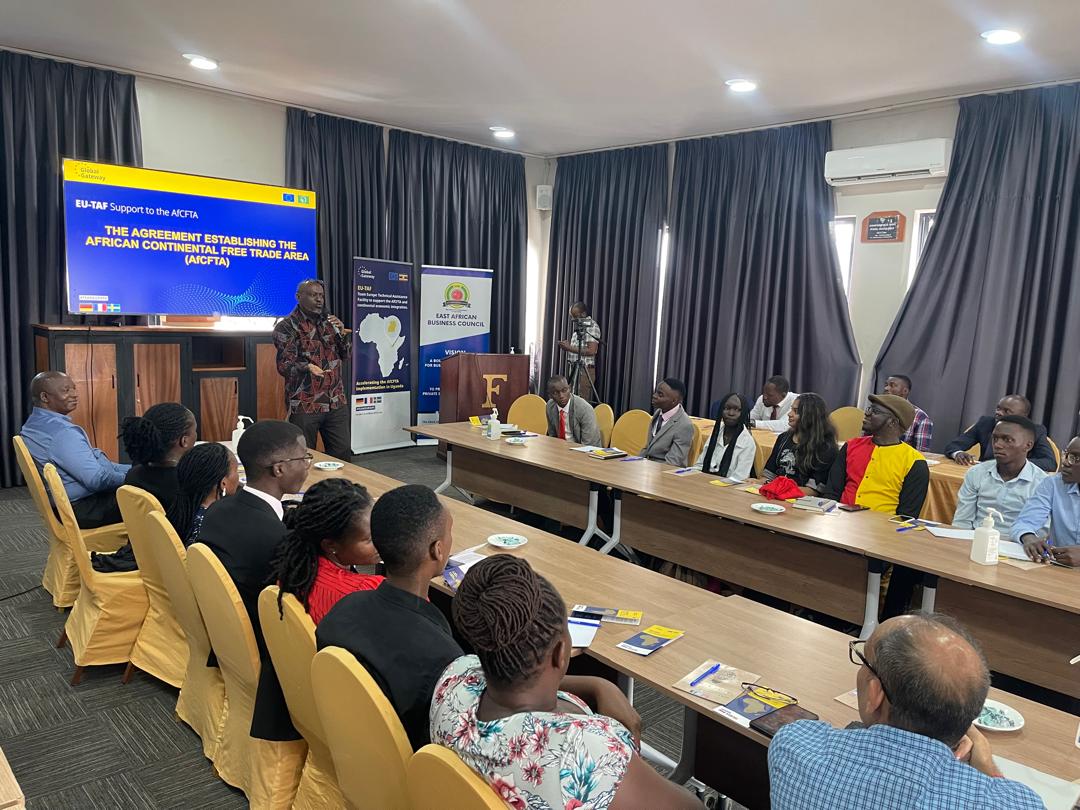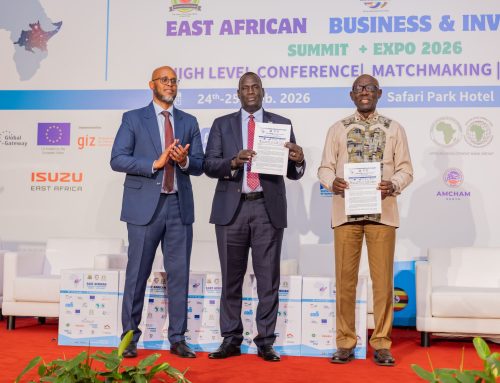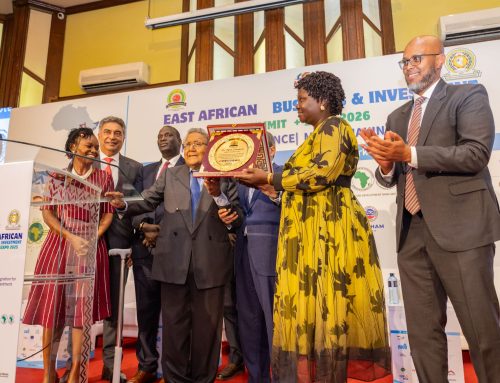Thursday, September 26th, Kampala, Uganda: The East African Business Council (EABC), in partnership with the Team Europe Technical Assistance Facility (EU-TAF) implemented by GIZ, organised a two-day workshop on the opportunities available under the Guided Trade Initiative (GTI), the AfCFTA Adjustment Fund, and the integration of EAC Value Chains under the AfCFTA. The workshop provided 50 participants from various sectors, including manufacturing, agro-processing, transport and logistics, and import and export, with essential information and knowledge needed to benefit from the opportunities provided by the AfCFTA.
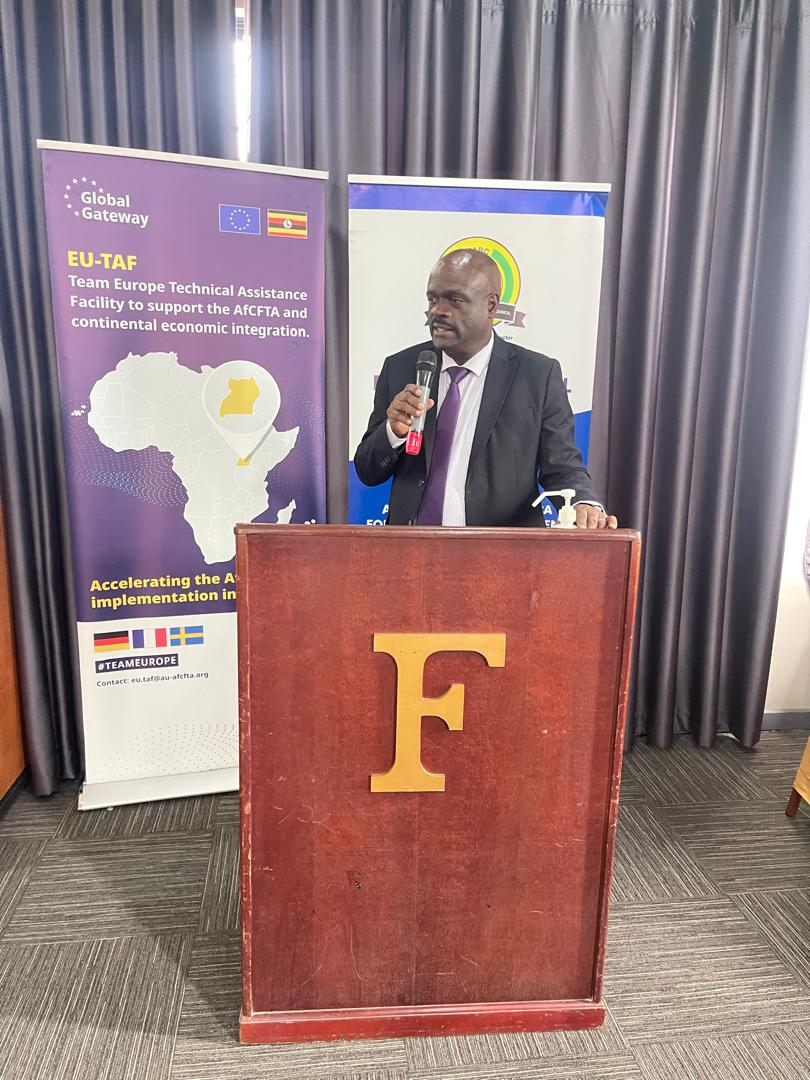 Mr. Cleopas Ndorere, Commissioner of External Trade, Industry and Cooperatives, presided over the sensitisation workshop and warmly welcomed all participants. He expressed his appreciation to the EABC for including small and medium enterprises (SMEs) as significant beneficiaries of the information-sharing session. He emphasised the pivotal roles of youth and women, representing a substantial portion of the population in Uganda and the entire EAC region. He urged the private sector to continue their efforts to influence their respective countries to fulfil the commitments to implement regional and continental trade agreements to open markets and facilitate the transfer of skills and innovation across the region and beyond. He further pledged support in facilitating traders in Uganda who express interest in trading through the AfCFTA Guided Trade Initiative, providing them with all the necessary information and guidance to seize the opportunities the initiative offers.
Mr. Cleopas Ndorere, Commissioner of External Trade, Industry and Cooperatives, presided over the sensitisation workshop and warmly welcomed all participants. He expressed his appreciation to the EABC for including small and medium enterprises (SMEs) as significant beneficiaries of the information-sharing session. He emphasised the pivotal roles of youth and women, representing a substantial portion of the population in Uganda and the entire EAC region. He urged the private sector to continue their efforts to influence their respective countries to fulfil the commitments to implement regional and continental trade agreements to open markets and facilitate the transfer of skills and innovation across the region and beyond. He further pledged support in facilitating traders in Uganda who express interest in trading through the AfCFTA Guided Trade Initiative, providing them with all the necessary information and guidance to seize the opportunities the initiative offers.
Mr Simon Kaheru, the East African Business Council Vice-Chair, thanked EABC’s partners and the Uganda Government for their support in mobilising members for a critical workshop. He highlighted the potential of the AfCFTA in turning Africa into a modern, industrialised, and influential global player, bringing opportunities for corporations, SMEs, youth, and women businesses. He urged participants to professionalise their business processes to compete effectively in the broader African market.
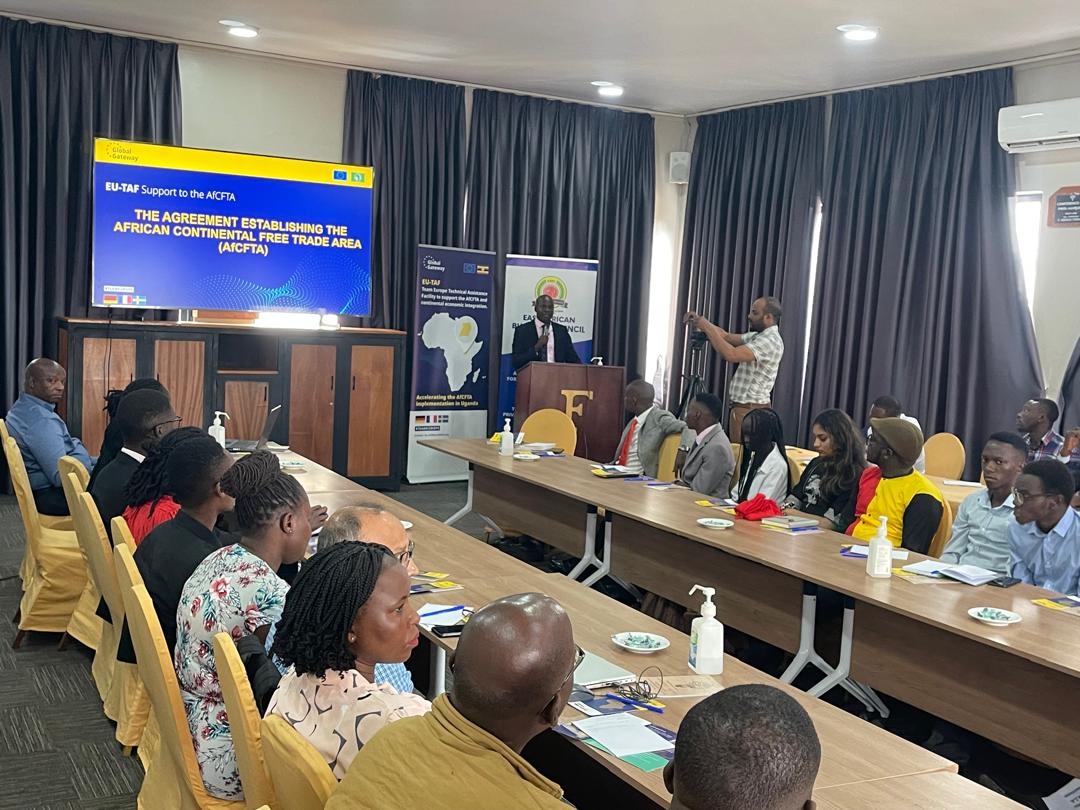 Mr. Martin Makku, the Sector Coordinator for Agriculture, Agribusiness, and Forestry in PSFU and the EABC National Focal Point in Uganda, appreciated the collaborative effort in organising the workshop. He emphasised the need for SMEs to comply with market access requirements and highlighted Uganda’s potential to offer products under AfCFTA, particularly coffee meeting global standards. This emphasis on Uganda’s potential inspires SMEs to explore these opportunities.
Mr. Martin Makku, the Sector Coordinator for Agriculture, Agribusiness, and Forestry in PSFU and the EABC National Focal Point in Uganda, appreciated the collaborative effort in organising the workshop. He emphasised the need for SMEs to comply with market access requirements and highlighted Uganda’s potential to offer products under AfCFTA, particularly coffee meeting global standards. This emphasis on Uganda’s potential inspires SMEs to explore these opportunities.
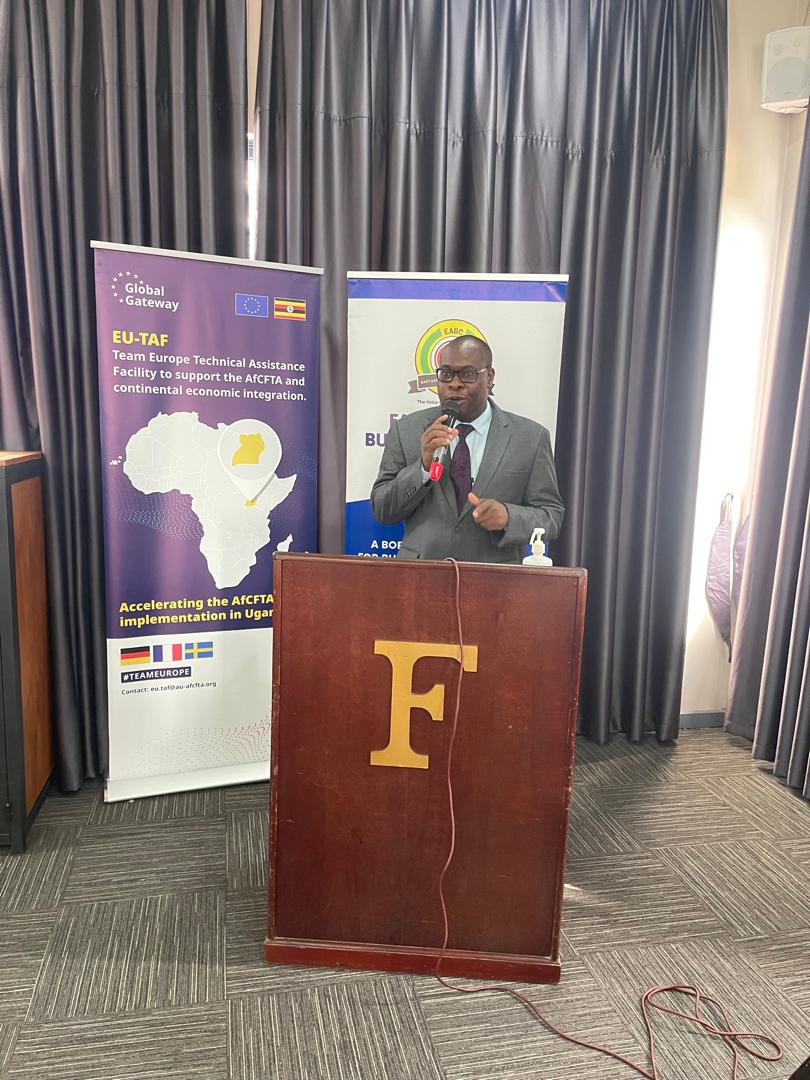 Mr. Samson Odhiambo, representing EU-TAF, underscored the private sector’s significant role as a catalyst for developing productive capacity and regional value chains. He stressed the importance of expanding access to foreign markets and supporting export-ready firms to foster business growth and technological spillovers. He also reaffirmed the EU-TAF’s is dedication to rolling out initiatives that accelerate the implementation of the AfCFTA, thereby fostering economic integration across Africa.
Mr. Samson Odhiambo, representing EU-TAF, underscored the private sector’s significant role as a catalyst for developing productive capacity and regional value chains. He stressed the importance of expanding access to foreign markets and supporting export-ready firms to foster business growth and technological spillovers. He also reaffirmed the EU-TAF’s is dedication to rolling out initiatives that accelerate the implementation of the AfCFTA, thereby fostering economic integration across Africa.
The two-day workshop convenes more than 50 SMEs from sectors such as Agro-processing, importation, exportation, Business Membership Organizations, transport and logistics, and Sectoral Associations. Over the two days, they will be trained on leveraging the Guided Trade Initiative and Value Chain Integration as they pursue trading under the African Continental Trade Agreement growth.
This workshop marks a significant step in equipping the private sector to navigate and benefit from AfCFTA’s liberalised trade environment. By integrating value chains across the EAC, the region is poised for growth and increased competitiveness on the continent.

